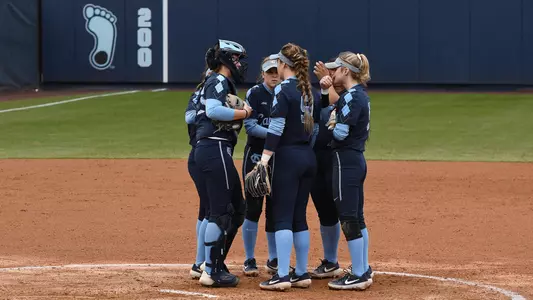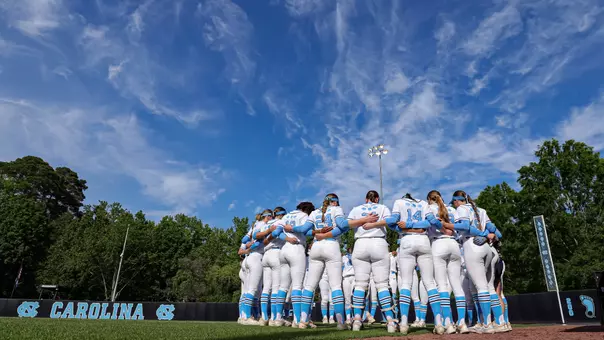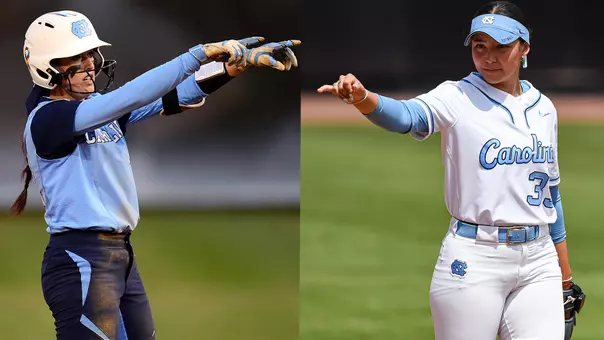University of North Carolina Athletics

GoHeels Exclusive: Kubin on the Front Lines in New York
July 30, 2020 | Softball, Featured Writers
By Pat James, GoHeels.com
The first first-team All-American in North Carolina softball history, Christine Kubin played in 17 extra-inning games for the Tar Heels from 1993-96.
Each one, she says, taught her the how to dig deep and find the extra bit of energy needed to get the job done. And although it's been 24 years since she applied that lesson on the softball field, it's still come in handy in her role as a clinical pharmacy specialist in infectious diseases at NewYork-Presbyterian Hospital, never more so than amid the coronavirus pandemic.
"During the height of the pandemic in New York City, we were definitely in that extra-inning-game-type scenario," Kubin told GoHeels.com recently. "We knew this was a marathon; this was not a sprint. And being a student-athlete taught me to plan, taught me to mentally and physically pace myself and really taught me the benefits of teamwork."
Like many Americans, Kubin, who has worked at NewYork-Presbyterian since 1999, said she initially thought the pandemic might "blow over in about 2-3 weeks." But four months later, she still finds herself on the front lines of the fight against the virus.
Although much has changed across the country, Kubin's responsibilities largely remain the same. She still concentrates on optimizing medications for hospitalized patients, as well as managing treatment guidelines and policies across the NewYork-Presbyterian system. The number of patients hospitalized, however, has presented some atypical challenges.
"We really had a lot of learning to do and had to do so quickly," Kubin said. "We didn't have really good antiviral therapies and we were choosing therapies that we didn't know the downstream effects of. So, there was just a lot of learning and challenges we had to overcome.
"At one point in the pandemic, we were hospitalizing over 6,000 patients a day in New York City hospitals, and with that volume going on daily, it quickly can overwhelm you and the system and what you do on a day-to-day basis. You learn to adapt. But given the large influx of patients and over-ordering, really, of pharmacy supplies by hospitals across the country because everybody was nervous, we really had to adjust our ordering and find alternatives when we had shortages and really do all this with a disease we knew so little about at the time."
Dealing with so much uncertainty in one of the major hotbeds of the virus, it could've been easy for Kubin and her colleagues to get down. But she said they've managed to stay positive, thanks in large part to the support of fellow New Yorkers.
"During the New York quarantine, health care workers were supported by local people and businesses," Kubin said. "There were signs, there were free meals, there were just general outpourings of support – which I think got you going every day. You even saw businesses that weren't open and were also helping each other and helping others who were out of work.
"So, I think everybody in general, whether you were in health care or not, came together, and I think that kind of got you through tough times and was very gratifying and actually made you proud to be part of a community like that."
As much as she's learned about the virus, Kubin said there's still much more information that needs to be obtained. Asked what she wishes more people understood about COVID-19, she boiled her answer down into a single phrase: "People should respect it."
"It's not just a disease of the elderly or a disease of immunocompromised patients, which is what I'm a little bit more used to being in infectious diseases," she said. "It can really affect anyone. I think the mortality for this disease was so high – especially in New York, where over 30,000 people unfortunately lost their lives in such a short time – that if you can do simple things to minimize your risk like wearing a mask or maintaining social distancing, then wear it, then do it."




